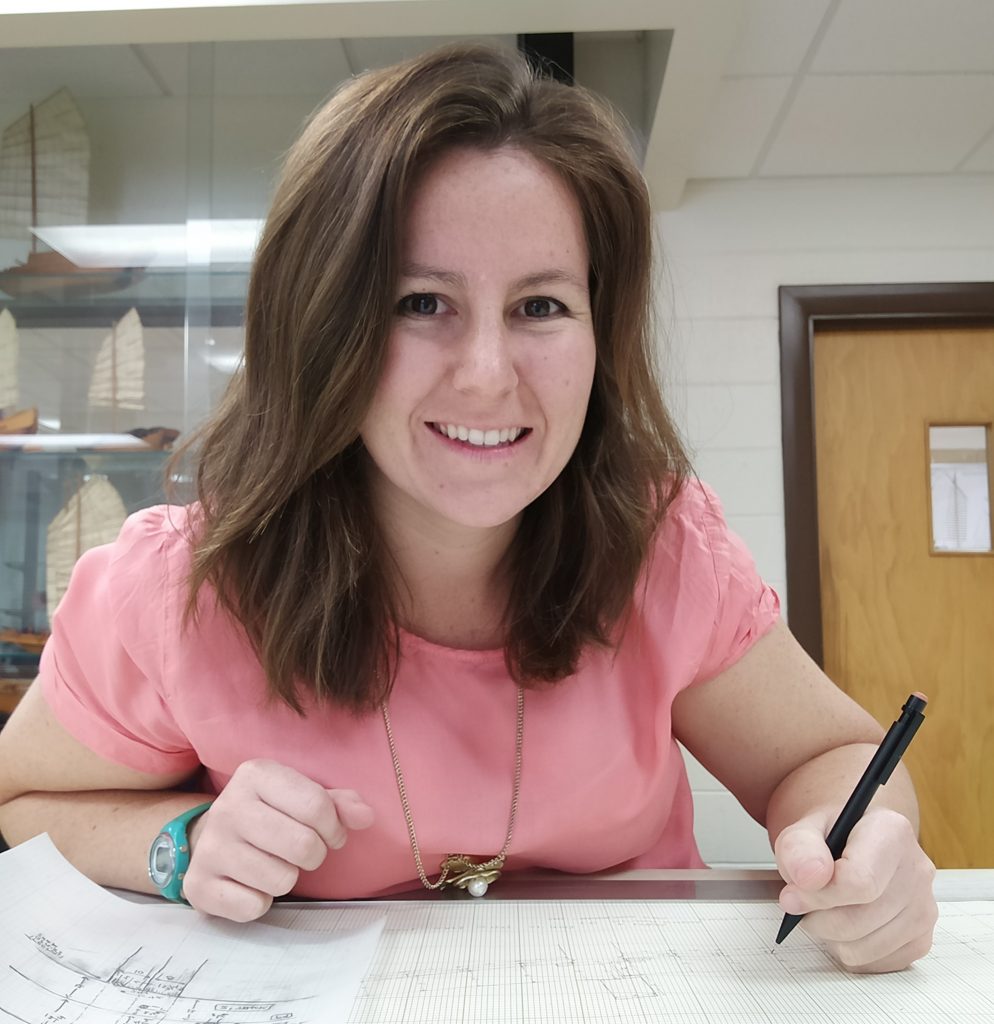Biography
Courses Taught:
- ANTH 313- Historical Archaeology
- ANTH 318 – Nautical Archaeology of the Americas
- ANTH 402- Archaeological Artifact Conservation
- ANTH 484- Anthropology Internship
- ANTH 489- Special Topic: Analytical Archaeology Methods in Archaeology and Conservation
- ANTH 489- Special Topic: Public Archaeology
- ANTH 616- Research and Reconstruction of Ships
- ANTH 617- Conservation III--Preservation of Organic Materials
Research Interests
Dr. Carolyn Kennedy is an Instructional Assistant Professor in the Department of Anthropology at Texas A&M University and Associate Director of the Center for Maritime Archaeology and Conservation. She also serves on the Archaeological Diving Control Board, overseeing scientific diving operations and training for students and collaborators. She earned her Ph.D. in Nautical Archaeology from Texas A&M, specializing in ship construction, artifact conservation, and the maritime history of northeast North America.
Dr. Kennedy’s research explores the maritime history and nautical archaeology of northeast North America, with a particular focus on ship construction and technological change from the post-medieval through early industrial periods. She is especially interested in how European shipbuilding traditions were adapted to new environments in North America, and how ships served as both tools of colonization and symbols of cultural exchange.
An expert in American shipbuilding, Dr. Kennedy has conducted extensive research on 18th- and 19th-century vessels ranging from Revolutionary War and War of 1812 naval vessels to merchant ships and early steamboats. Her work reveals how American shipwrights adapted construction methods to local resources, waters, and cultural contexts, and how these adaptations influenced the development of broader maritime industries.
Her broader interests include archaeological artifact conservation, analytical methods in shipwreck interpretation, and public archaeology as a means of engaging communities in maritime heritage. Through projects in northeast North America (e.g. Québec, New York, Vermont, and Virginia), Dr. Kennedy investigates themes of naval warfare, industrial innovation, cross-cultural interaction, and the preservation of fragile underwater resources in the face of climate change.
At Texas A&M, Dr. Kennedy teaches a wide range of undergraduate and graduate courses, including nautical archaeology of the Americas, historical archaeology, archaeological artifact conservation, ship reconstruction, public archaeology, and scientific diving. Her teaching is deeply experiential, often blending classroom learning with lab analysis and field research. Students in her courses gain the opportunity to practice conservation methods, analyze ship timbers, and gain scientific dive training.
Dr. Kennedy directs the Gaspé Maritime Archaeology Project, a long-term initiative to document and analyze the maritime heritage of eastern Québec and the Gulf of St. Lawrence. She also co-directs the Philadelphia Gunboat Research Initiative, a collaborative project revisiting the 1776 Battle of Valcour Bay in Lake Champlain as its 250th anniversary approaches. Her other projects include the study of 18th- and 19th-century shipwrecks from the Alexandria, Virginia waterfront and research on early steam-powered vessels at the Shelburne Shipyard Steamboat Graveyard in Vermont.
Educational Background
- Ph.D., Texas A&M University, Anthropology (specialization: Nautical Archaeology), 2019
- M.A., Texas A&M University, Anthropology (specialization: Nautical Archaeology), 2019
- B.A., Concordia University (Montreal), Honors Classics (Classical Civilizations) and Anthropology, 2012
Selected Publications
- 2025 Dostal, C., K. Breyfogle, C. Kennedy. “A Call to Action Regarding Vinegar Syndrome Degradation of 1:1 Drawings in Nautical Archaeology.” International Journal of Nautical Archaeology.
-
2025 Dostal, C., C. Kennedy, B. Ioset. “An Analysis of an 18th-Century Sailing Lighter Discovered Along the Alexandria, VA Waterfront.” International Journal of Nautical Archaeology. https://doi.org/10.1080/10572414.2025.2502914.
- 2025 Dostal, C., K. Breyfogle, C. Kennedy. “A Call to Action Regarding Vinegar Syndrome Degradation of 1:1 Drawings in Nautical Archaeology.” International Journal of Nautical Archaeology.
- 2024 Kennedy, C., and K. Crisman. “Four 19th-century Steamboats in Shelburne Shipyard, Lake Champlain, Vermont, U.S.A.” Accepted, International Journal of Nautical Archaeology. DOI: 10.1080/10572414.2024.2366196.
- 2023 Kennedy, C. and C. Dostal. “Shipwrecked at Land’s End: The Gaspé Maritime Archaeology Project 2022 Field Season.” Archéologiques, 36: 29-45.
- 2022 Kennedy, C. “Traveler Impressions of Lake Champlain Steamboats 1827-1842.” The Northern Mariner, Vol. 32 (1): 21-38.
-
2020 Dostal, C., G. Grieco, P. Fix, C. Kennedy, J. Herbst, L. Schultz, R. Borrero. “The Documentation and Reconstruction of an 18th-Century Wooden Ship from Alexandria, VA.” Digital Applications in Archaeology and Cultural Heritage, Vol 16: 1-10. https://doi.org/10.1016/j.daach.2020.e00136
-
2018 Crisman, K., C. Kennedy and G. Schwarz. “Vermont’s Steamboat Pioneer: Captain Jahaziel Sherman of Vergennes.” Vermont History, Vol. 86 (2): 125-161.

